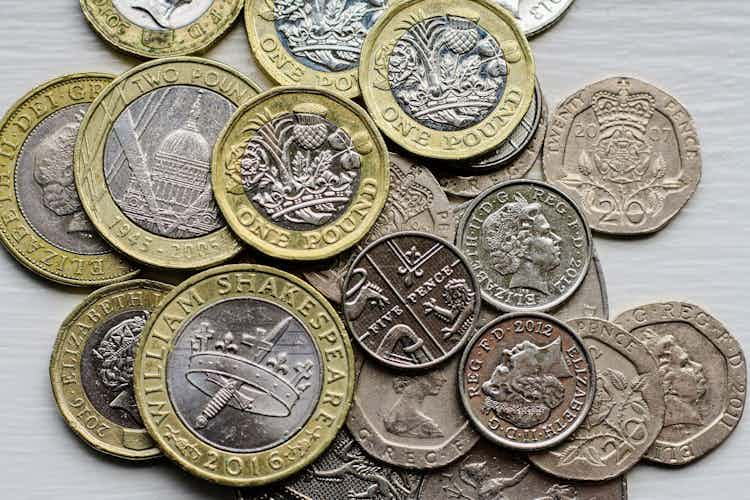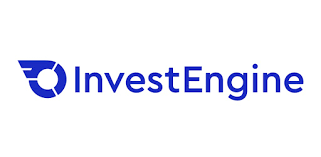Many of us are looking to increase our income. One way to do that is to ensure your savings earn as much interest as possible, but savings rates have been at historic lows for a long time. However, following the Bank of England's 2022 interest rate hikes, some banks are starting to increase rates on products like easy-access savings or regular savings accounts.
Many financial institutions in the UK, like Santander, NatWest, Virgin Money, Barclays and Nationwide, all proclaim to have the best savings rates. In addition, Chase UK - a relatively unknown name in the country - is offering a Chase Saver Account. We've looked at this product to enable us to highlight the product's good and bad points, so you can determine whether it's a suitable account for you.
Discover stocks and shares ISAs from the UKs leading providers. Click on your chosen provider to get started!
What is Chase bank?
Chase is an app-only bank owned by JP Morgan Chase. Like other online banks, you can only manage Chase accounts digitally, an increasingly common feature among so-called challenger banks. As a digital bank, Chase has lower overheads than traditional bricks-and-mortar banks, hopefully leading to better fee structures and interest returns. Importantly, it still has the backing of its well-established parent company - JP Morgan.
Common differences between a current account and a savings account
Chase offers other types of accounts in addition to its saver account. To have a Chase saver account, you must first open a current account with the bank. With that in mind, it's good to know the differences between the two and their common characteristics.
Current accounts
In general, current accounts are:
- Used for your day-to-day transactions,
- Where your salary or pension is usually paid
- Can have a high minimum balance - often so you can dip into it to make those common daily or monthly payments.
Many current accounts come with an overdraft facility, and many banks offer additional features such as travel insurance or rewards when purchasing at certain shops or suppliers.
Savings accounts
On the other hand, a savings account is usually an account where
- You make regular payments
- Place to deposit a large amount of cash.
People do so to earn interest - a payment the bank makes to you for saving money with them. Interest rates vary from savings product to product, from bank to bank. How banks pay interest can also vary - some will only pay a certain amount if you make regular payments. Others will pay you a higher interest rate, the higher the balance.
You may often start with a lower balance amount in your savings account than your current account. However, once you've managed to squirrel away enough, savings accounts can amount to more than your current account.
In retirement, you may be starting to dip into your savings accounts to make up for any shortfall in your pension income.
Current accounts vs savings accounts
There are more types of savings account products than current account products - even within a single subcategory. For example, ISAs are forms of savings accounts, as are fixed-rate bonds. Finding a savings account product for you can be overwhelming due to the breadth and depth of the market. However, as long as you break down each potential product into its advantages and disadvantages - and then weigh them up in relation to your situation - you should be able to find an account that works for you. However, financial advisors could also be helpful in these instances.
What is the Chase saver account?
Given the number of savings accounts around, let's identify what Chase itself markets as selling points to its saver account. The Chase saver account offers the following:
- 1.5% AER interest on your cash balance
- Interest is calculated daily and paid monthly
- Take money out at any time with no penalties
- No monthly fee
- No fees abroad
- A numberless card with card details stored in your app
- Free extra accounts
- Round-up account
Requirements to open a bank account with Chase
To open a new account, new customers must:
- Be over 18
- Be a resident of the UK only
- Have a UK mobile number and a smartphone
- Pay tax in the UK
Advantages of a Chase savings account
With banks trying to maintain their competitive edge to attract new customers and retain old ones, you can enjoy the following advantages with a Chase saver account.
Interest rate
The interest rate that Chase is currently paying is one of the best on the market (at the time of writing). You can earn 1.5% on any money you have saved in your Chase savings account. That means if you put £1,000 into your new Chase saver account on the day of opening and pay nothing else for the rest of the year, you'd have £1,015 at the end of 12 months.
Cashback
While it’s great to earn interest on any savings held in an account, it’s also great when banks offer cashback incentives on your spending.
With Chase, you can earn up to 1% cashback on your debit card spending - in the first year. Exceptions apply like purchasing on prepaid cards, cryptocurrencies, and cash withdrawals. Plus, it’s not clear what happens to this cashback offer once 12 months have passed.
However, the terms and conditions at the time of writing do not stipulate that paying your energy bills with a Chase debit card is exempt from earning cash back. So this could be an excellent way to soften the blow of rising energy prices.
Minimum deposit
Products with higher than average interest rates sometimes require higher minimum deposits or balances. With a Chase savings account, there is no minimum deposit requirement.
Instant access
In the current climate, accessing your savings whenever you need them is increasingly important. Chase's easy access account does not penalise you for taking out money. The peace of mind that brings is crucial and helps you ensure you are still earning some form of interest on money held in your bank account.
High maximum amount
If appropriate for your financial situation, saving up to £250,000 in one of these accounts is possible. While it could be possible to invest that money elsewhere and earn a higher interest rate, like bonds or stocks, easy access may be what you require.
Multiple accounts
Many savers like to keep separate pots of money - which correlate to different items they are saving for. If you're saving up for a new car and a holiday, Chase saver accounts could be an option as the bank allows you to open up to 10 saver accounts. Plus, you 'set a goal' within these accounts, with the app handily telling you how far you are from your goal. The accounts also let you set up regular payments so you can start saving every day, week or month without forgetting to add it to your 'pots'.
Once your balance across all saver accounts reaches £250,000, you’ll not be able to pay in any more cash - though you will still be earning interest.
Chase app
You can only access these accounts through Chase's app. While that may or may not be a good thing for some customers, Chase's app is high quality and easy to use. It means that even if you don't like accessing your financial services through your phone, you will find this particular app straightforward. As a result, managing your money is quickly done - and far less prone to error than keeping paper records.
Round-ups earn high interest
Chase offers an innovative round-up feature to make your money go even further. While many banks and apps let you round up every purchase to the nearest pound and move the round-up into a savings account - Chase goes one further. They'll pay 5% AER (or 4.89% gross) on the round-ups you make.
So, for example, say you buy something for £11.60 on your card. Chase will put 40p into your savings account automatically for you (so your card is charged £12), but you will earn 5% AER on that 40p. While that isn't a lot of money in real terms, considering all your spending, it can begin to add up to a reasonable amount.
Disadvantages of a Chase savings account
Weigh up the following disadvantages against the benefits of this account. Doing so will allow you to calculate whether, on balance, this is a suitable product for you.
Interest rate
While the interest rate on a Chase savings account is market-leading at the time of writing, let's not hide the fact that it is still very low and far lower than inflation is. That means your money will lose purchasing power if you save it instead of spending it. But, arguably, as a market-leading interest rate, it is the best of a ‘bad bunch’ - and protecting any of your cash as best you can, can be a good thing.
Online access only
Many people are happy to manage their money online. However, you may still prefer to go into a branch to talk to someone face to face. Or perhaps be able to call your bank and rectify a problem over the phone. Online accounts are meant to streamline your banking processes, but if you’re not technologically savvy, you may find managing this account outside your comfort zone.
Chase current account needed
Perhaps one aspect potential new customers won't like is that you can only open a savings account if you are a Chase current account holder. You may already have a current account that you are happy with and enjoy its benefits, so you may not want another one. However, this account requires you to open a current account with Chase first.
Round up account
The round-up account - where Chase puts the round-up charges that earn 5% - has a few terms and conditions you should be aware of that may decrease your interest in this product.
- You can’t make payments into the account other than through round-ups on debit card payments.
- You can’t spend directly from the account (so you have to transfer to your current account first).
- You can only withdraw money by transferring funds to other accounts first, so you won't be able to access round-up cash by taking money out at ATMs.
- You can’t make debit card payments, set up direct debits or have an overdraft on this account.
These terms and conditions may detract from the upsides for you.
Is opening a Chase saver account a good idea?
As with any financial product, whether it’s a good idea to open a Chase saver account depends entirely on your specific financial situation. For example, keeping money aside for emergencies or saving up for something without buying it with a credit card is often advocated for good money management. But that doesn’t automatically mean that this account is right for you.
You may be put off by its online-only feature, the fact that the interest rate does not beat inflation or that you must open a current account with Chase first. However, its benefits could be so compelling for you that they overshadow the disadvantages. For example, the round-up feature with a healthy interest rate payment is attractive, not to mention the cashback and minimum deposit requirements.
You must consider whether the benefits allow you to reach your financial goals. Ask yourself: what are you saving for? If it's retirement, you may find it better to invest in your pension pot and purchase stocks and shares, which, over time, will often earn a better return than what Chase is offering. However, if you want easy access to some savings in case of unforeseen costs in your retirement, this could be a suitable option.
Image Credit: Sarah Agnew at Unsplash







